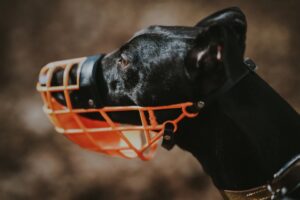Genetics and environment influence a dog’s behavior. Both of these factors will impact how a dog reacts to a situation.
It is impossible to predict a dog’s behavior only by his breed, but it is possible to anticipate his temperament.
Understanding the differences between learned and innate behaviors makes it easier to understand why the dog acts in such a way and how they influence him. This way, you can build a healthy relationship with your four-legged friend.
What Is an Innate and Learned Behavior in Dogs?
Hereditary behaviors are innate notions. These are pre-existing tendencies from birth that act instinctively. It is a genetic baggage that includes the natural behaviors and abilities of a species. For example, for a dog, it is natural to salivate when smelling food, wanting to dig, smell, chew, and bark. Understanding dog behavior starts with understanding their inherited temperaments and instincts.
As for the environment, we are talking about acquired behaviors that require learning. It is a conditioned behavior that brings out new reflexes and thoughtful gestures that relate to acquired experiences. For example, when a dog becomes excited when shown his leash. This situation is a conditioned behavior since the dog has learned that every time you take out the leash, it means that he is going for a walk. So he associated the leash with pleasant experiences, which provoked a conditioned reaction.
How Does the Environment Influence Dog Behavior?
The environment has a major impact on dog behavior. Dogs are sensitive to their environment in many ways, such as the presence of other animals or people, the noise level, the smells, and the types of surfaces they walk on.
It is important to recognize when your dog is feeling uncertain or uncomfortable in an environment and to adapt accordingly. This is why knowing your dog’s body language is important, in order to better understand his emotion, have a better relationship and be able to create a strong bond. Thus, your dog will trust you in any case, since he will know that you will avoid putting him in an uncomfortable situation.
The environment also affects how dogs decide to behave. They often display different behaviors in different environments, whether it’s a dog park full of people and other animals or a quiet home with just you and your dog.
Depending on your dog and the socialization he has received, he may have mixed emotions about new experiences. For example, he may be uncertain, stressed, scared, and curious. it mainly depends on the intensity of the changes and the ability of your dog to adapt.
Socialization
The socialization of the puppy plays a big role in his ability to adapt to a new environment. This is why it is important to offer an enriching and diversified environment from an early age. They must have positive or neutral experiences with a multitude of different noises, textures, places, people, and animals.
It is important to be aware of the environment you provide your dog and how it will affect his behavior, especially in puppies. Their behavior is very malleable, so certain experiences can easily affect it without you realizing it.
With proper preparation, you can ensure that you and your dog are happy and comfortable in all kinds of environments. This is, among other things, why it is important to learn about or take puppy socialization courses. Inadequate socialization will impact his behavior throughout his whole life.
Also, socialization is important in adulthood. He should meet new people, and new dogs, and visit new places to keep him sociable, have a fulfilling life and avoid behavioral issues.
Inadequate socialization
Dogs are social creatures and need proper socialization to grow into healthy, emotionally balanced pets. Lack of proper socialization can lead to behavioral issues such as excessive barking, aggressive behavior, or fear of people, animals, and unfamiliar situations. This fear can take on excessive proportions which can lead to problems like anxiety and aggression.
To avoid these problems, it is important to introduce your dog to new environments in a controlled manner. This can include walks in public places like dog parks or dog-friendly stores and exposing them to different sights, smells, and sounds. On the other hand, avoid putting him in an overly stressful situation since it could lead your dog to a state of distress.
Environmental factors
Noise level can also play a role in dog behavior. Loud noises or unfamiliar sounds can be particularly alarming to some dogs, especially if they aren’t used to them from a young age. Provide your dog with a safe and quiet space where he can feel comfortable and secure if the environment is too noisy or chaotic for him.
Some dogs may be more sensitive to temperature changes. Your dog might not like being out in the rain, walking in the snow, or being exposed to heat or cold for a long time.
Then, the presence of another animal is also a factor to consider. It is best to introduce the animal gradually so that your dog gets used to the smell and presence of the other. Next, it’s important to make sure both animals are comfortable with the situation before allowing them more freedom together. In addition, your dog may not be able to cohabit with other dogs or other species.
A dog that has never been in contact with another species could be uncertain, afraid, or predatory. This situation occurs especially when the animal starts to run since the rapid movements activate his prey drive. This encourages him to chase his prey and he could hurt the other animal and, in rare cases, even kill it. This is why a dog that has never been in contact with other animals should never be left unsupervised, especially if we do not know his history.
Physical and mental activity levels
A dog’s physical and mental health is highly dependent on his activity level. Without proper physical exercise, dogs can become sedentary and overweight, leading to physical and mental health issues. Inactivity can also lead to destructive behaviors such as chewing, digging, or barking due to boredom and a lack of stimulation.
To keep your dog healthy, it is important to provide him with enough physical and mental exercise every day. This can include walks, dog sports, and interactive games. Activities should be fun for your dog to help stimulate his mind as well as his body.
Here are some examples of interactive games:
- Interactive bowls
- Interactive balls (Kong, West Paw Toppl, Omega Paw)
- Licking mat
- Snuffle mat
How Does Heredity Influence Dog Behavior?
Genetics, or heredity, determines a dog’s breed-specific traits, such as height, coat type, and temperament.
Dog behavior is influenced by hereditary temperaments. Different dog breeds tend to have distinct temperaments and behaviors. They were shaped by their ancestors and the environment in which they evolved. Dogs also have instinctive behaviors such as barking, digging, and chasing that are ingrained in them from birth.
For example, Terriers tend to be more energetic and independent, while Retrievers are often more patient and obedient. By recognizing a dog’s inherent traits and qualities, you can better anticipate his reaction to different situations. It also helps plan the most effective training methods for him.
With this knowledge, dog owners can ensure that they are providing the best possible care for their canine companions. This makes it easier to build healthy relationships between humans and dogs.
All in all, by providing lifelong socialization opportunities, you can help make your dog a confident and friendly companion.
If you are interested in learning more about canine behavior, check out these articles:
Bibliographic sources:






